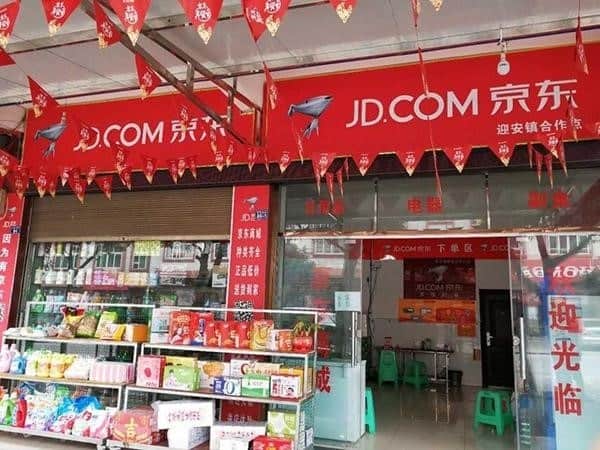
JD.com’s boss Liu Qiangdong said in a conference that the company will open 1,000 stores every day
China’s second-ranking e-commerce company continues to expand its online empire into the offline world as JD.com’s founder and chief executive vowed late last week to open 1,000 stores every day this year.
“As of last month, JD.com opened 1,000 convenience stores in China every week. Our target is to open 1,000 stores every day by year-end. Almost every store would be franchised,” Liu Qiangdong, CEO of JD.com said at a conference in the southwestern city of Chongqing, which was first reported in local media.
50,000 Franchisees Apply to Open a Store Daily
The ambitious aim is a part of a plan the retail giant announced last April, when Liu declared that the e-commerce company would open one million convenience stores in the next five years, with half of these located in rural areas. Run on a franchise model, JD.com’s convenience stores are opened and operated by independent investors. Potential franchisees may apply for loans from the retail behemoth to facilitate opening a shop.
“We receive 50,000 applications every day. The applicants are mostly migrant workers who have returned to their villages or small towns. Jingdong Finance would provide them with loans to open stores. They can earn more than RMB 8,000 each month,” Liu said in the conference, as cited by local media.
The plan’s first batch of shops, comprising 1,111 stores, opened their doors to customers on the same day last November.
JD Takes Competition with Online Rivals into Offline Retail

A JD.com convenience store in Sichuan
Liu’s latest announcement comes a month after the e-commerce platform signed an agreement with convenience store operator FamilyMart in early March. The agreement enabled JD users to have food delivered to their homes from FamilyMart’s core locations in Beijing, Shanghai, Shenzhen and Chengdu within one-half-hour at any time.
The convenience store blitzkrieg comes as JD, which operates China’s second largest e-commerce platform, takes its online competition with rival Alibaba into the offline retail world.
Liu’s firm recently debuted its first offline fresh-food supermarket 7Fresh, a 4,000 square metre store in Beijing that features “smart carts” that guide customers to their desired aisles. The real world grocery venture seems aimed squarely at Alibaba’s Hema chain, which last month signed a deal with some of China’s biggest developers as it strives to open 2000 online to offline (O2O) grocery stores nationwide in the next three to five years.
JD’s first high-profile deal in the emerging O2O retail sector was its investment of RMB 4.3 billion ($700 million) for a 10 percent stake in Shanghai-listed supermarket chain Yonghui Superstores in 2015.
In January Alibaba rival Tencent invested in French retailer Carrefour’s China unit, which operates 225 hypermarkets and 30 convenience stores in China.
Leave a Reply